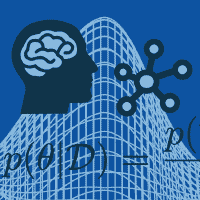Topic Editors
Artificial Intelligence for Education

Topic Information
Dear Colleagues,
Artificial intelligence (AI) has shown great potential in tackling numerous educational challenges in the classroom and school management.
At the classroom level, AI applications have been designed to support instruction by customizing learning materials, sequencing learning activities, and providing individualized feedback and scaffolding based on individual learners’ profiles. In this regard, AI is used to identify resources and pedagogical approaches that are considered appropriate for learners’ needs, predict potential outcomes, and recommend the next steps of the learning process for them. At the school level, AI applications are designed to support both school management and the system. Some examples include reducing dropout through predictive analysis and offering timely assessment of new skills like higher cognitive skills.
Despite its benefits, AI applications in education have faced criticism for various reasons, such as the lack of control over their behavior, the exclusion of practitioner expertise in their design, and the lack of interpretability. Despite these concerns, AI methods are being integrated into public sector education systems through machine learning, natural language processing, image processing, and expert systems.
Improving these systems to retain public sector values involves addressing major issues, including the above-mentioned challenges. Failing to do so is considered a huge disadvantage as, in practice, learners’ performance, grade, risk of failure, etc., predicted through such AI methods should be accurate, unbiased, and transparent, accompanied with reasons on why a specific feedback, intervention, or pedagogical tool is appropriate for a learner.
Given the growing importance of AI in society and supporting education and the existing challenges in their applications, this topical collection focuses on AI for education. This collection expects original research and review articles that combine computer science and informatics ideas with the social sciences. Articles can be within (but are not limited to) the following areas:
Topics of Interest
- Artificial intelligence for education (AIEd);
- Natural language processing for education;
- Education data mining and learning analytics;
- Educational recommender systems;
- Affective computing for education;
- Neural-symbolic AI for education;
- Artificial neural networks, machine learning, and statistical and optimization methods for education;
- Evaluation of artificial intelligence, adaptive, or personalized educational systems;
- AI-based adaptivity and personalization for education;
- Intelligent tutoring systems, serious games, simulations, and dialog systems for education;
- Multimodal multichannel trace data for AI systems;
- AI for Education and ethics.
Dr. Danial Hooshyar
Prof. Dr. Roger Azevedo
Prof. Dr. Raija Hämäläinen
Topic Editors
Keywords
- artificial intelligence for education
- education data mining and learning analytics
- NLP and image processing for education
- ethics of AI in education
- affective computing for education
Participating Journals
| Journal Name | Impact Factor | CiteScore | Launched Year | First Decision (median) | APC | |
|---|---|---|---|---|---|---|

Applied Sciences
|
2.7 | 4.5 | 2011 | 16.9 Days | CHF 2400 | Submit |

Education Sciences
|
3.0 | 4.0 | 2011 | 24.9 Days | CHF 1800 | Submit |

Machine Learning and Knowledge Extraction
|
3.9 | 8.5 | 2019 | 19.9 Days | CHF 1800 | Submit |

MDPI Topics is cooperating with Preprints.org and has built a direct connection between MDPI journals and Preprints.org. Authors are encouraged to enjoy the benefits by posting a preprint at Preprints.org prior to publication:
- Immediately share your ideas ahead of publication and establish your research priority;
- Protect your idea from being stolen with this time-stamped preprint article;
- Enhance the exposure and impact of your research;
- Receive feedback from your peers in advance;
- Have it indexed in Web of Science (Preprint Citation Index), Google Scholar, Crossref, SHARE, PrePubMed, Scilit and Europe PMC.




